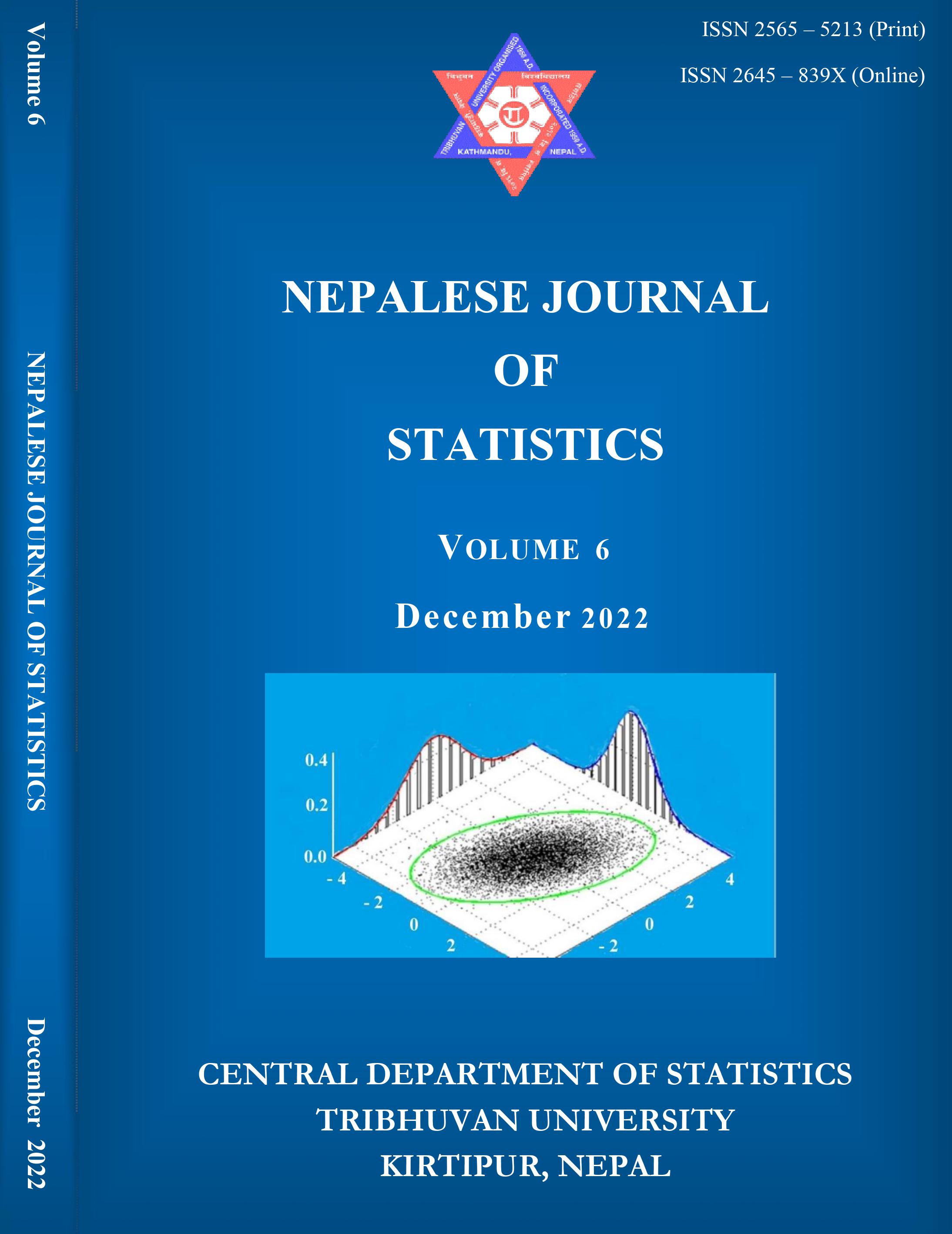Impact of the Targeted Extension Program on Rice Productivity in Tamil Nadu, India
DOI:
https://doi.org/10.3126/njs.v6i01.50796Keywords:
Farm income, randomized control trial, rice yield, southern India, targeted extensionAbstract
Background: Based on a randomized experiment by treating one group of farmers with an extension package and the other group as usual in Thanjavur district of Tamil Nadu, India, we examined the impact of the targeted extension package on farmers’ rice yield.
Objective: The objective of the study was to investigate whether the chosen targeted extension package would significantly increase farmers’ rice yields or not.
Materials and Methods: We estimated a multiple linear regression model to determine the effect of several independent variables, including plot size, amount of money borrowed, and farmers’ income on the rice yield.
Results: We found that the rice yield among the farmers who received the extension package had increased compared to the group of farmers with no extension support. The regression coefficient of extension (1 = yes, 0 = no) is statistically significant (p-value = 0.063) at a 10% level of significance.
Conclusion: Assessing the impact of the targeted extension package on the farmers is important in utilizing good agricultural practices to increase rice productivity. We concluded that a targeted extension program is crucial for increasing rice yield among rural farmers in Southern India.
Keywords: Farm income, randomized control trial, rice yield, southern India, targeted extension.
Downloads
Downloads
Published
How to Cite
Issue
Section
License
© Central Department of Statistics, Tribhuvan University, Kirtipur, Kathmandu, Nepal
The author of article must sign the copyright permission or the author must assign copyright to the Central Department of Statistics, Tribhuvan University prior to publication.
All rights reserved.




